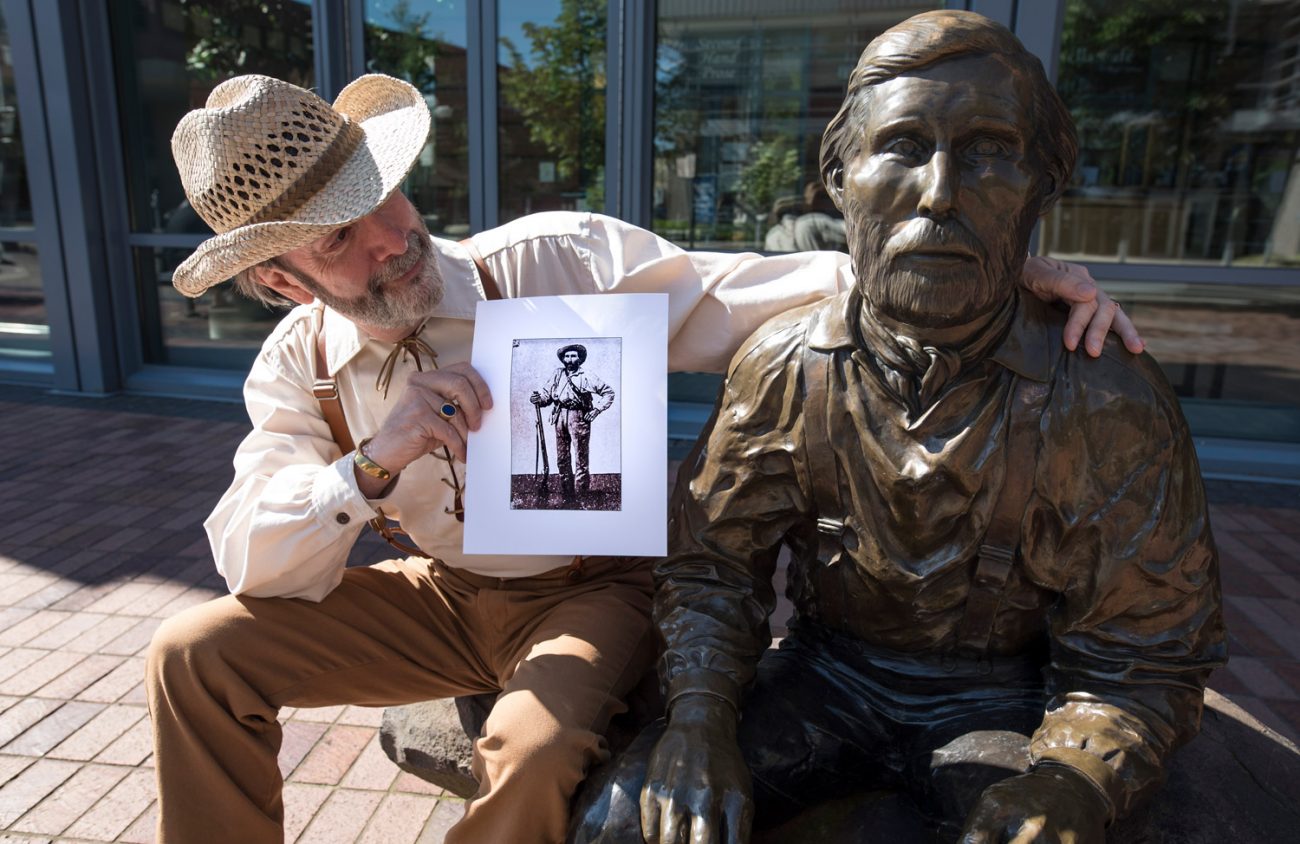A descendant of Eugene Skinner — the founder of the city of Eugene — is seeking to prevent the proposed land swap for a new Eugene City Hall and Lane County courthouse, on the grounds that such a trade would violate the legal requirements placed on the land when it was donated to the county.
The land swap in question is a deal in which the county would build its new courthouse on the empty lot that previously housed City Hall, and the new City Hall would be built on county land. Officials in both governments say the swap would help re-create the public square at the location of the Park Blocks.
It’s unclear why Ken Darling, who claims to be Skinner’s great-great-grandson, is troubled by the proposal. He says the proposed land swap disrespects his forefather’s wishes. “You don’t mess with family,” Darling says, “especially if you discount how important these people were to the development of the area. Eugene has been famous for just knocking down history.”
The original deed donated 40 acres to Lane County, and Skinner required a public square within that acreage and “that the court house be built in the center of said square,” the deed says. It further reads that the land was donated “upon condition that the said county seat be and remain at Eugene City, and that said 40 acres of land be appropriated and used for said purposes.”
The public square referenced is the Park Blocks at Oak Street and Eighth Avenue, an area which has shrunk significantly since the founding of Eugene due to development in the area and the advent of motor vehicles, leading to wider streets. The courthouse is no longer on the public square, and hasn’t been since 1960.
The city and county brought their proposed land swap to a judge in Coos County last year, but Judge Richard Barron declined to rule on the case. Lane County’s public information officer Devon Ashbridge says, “The judge declined to rule on a similar set of issues as no formal commitments, such as an executed purchase and sale agreement, had been made.” At the time of that first petition Darling chose not to intervene in the case.
“I’d like to see the county use the land that they already own and take down the butterfly lot, and start building there,” Darling says, adding that he is concerned primarily about the government violating the restrictions of the original deed by moving the city onto the land that was originally the public square and removing the county buildings from that location.
“They just need to follow the deed,” he says. “That’s it.”
Local architect Otto Poticha has done some research into the issue and says he doesn’t think the deed still applies to the land in question.
“The north half of the butterfly site and the north half of the courthouse site were not part of the donation, they had already been sold from the donation to private citizens and bought back,” Poticha says. “It seems to me the north half, which is the best part for the city hall to be on, is a non-issue.”
Deed records from the county assessors’office show that the butterfly lot hasn’t changed hands since the county started tracking ownership. The plot currently housing the Lane County courthouse and Harris Hall was sold to R.A. Babb Hardware Company sometime after the land was donated and was sold back to the county in 1958.
On Sept. 5, the county and city filed a new joint petition seeking judicial examination on whether the Skinner deed could prevent the land swap.
Ashbridge says, “A petition would allow both agencies to establish clear legal understanding of the range of property uses available for the Butterfly Lot and for siting the Courthouse.” She adds that the process “ensures that any interested person has an opportunity to participate.”
A recent opinion piece in The Register-Guard by Jim Hargreaves, retired circuit judge, says the worst possible outcome “would be that the title to all of the 40-acre donation by the Skinners that is still owned by the county could revert to the Skinners’ heirs.”
Such a reversal would put the land between Seventh and Eighth streets and West Park and Pearl streets back in the hands of the those heirs, according to Hargreaves.
Darling says his family likely won’t fight to acquire the land from the county, but instead he will try to ensure that the deed is followed. “We just want to be validated,” he says.
The joint petition for judicial examination of the issue is set to be filed in September.
